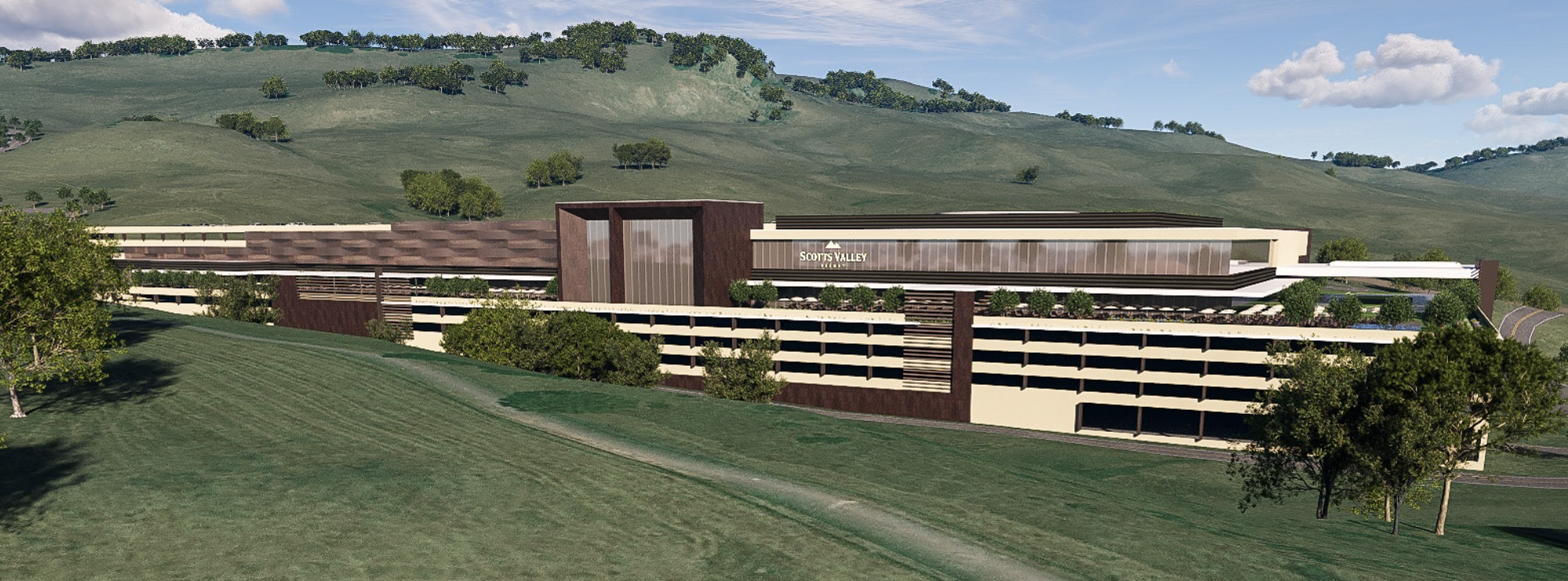
- Details
- By Kaili Berg
The Scotts Valley Band of Pomo Indians has taken the Department of the Interior (DOI) to federal court over what the Tribe is calling a last-minute and legally unjustified reversal of a decision that cleared the way for a tribal gaming project in Vallejo.
On April 1, the Tribe filed a lawsuit, Scotts Valley Band of Pomo Indians v. Douglas Burgum, et al., and an emergency motion for a Temporary Restraining Order (TRO) to stop the DOI from reopening its finalized determination that deemed the Tribe’s trust land eligible for gaming.
That decision, issued on January 10, 2025, came after years of review, legal battles, and a prior court-ordered remand.
Now, just months later, the DOI says it plans to “temporarily rescind” the eligibility ruling and revisit the record. Scotts Valley calls the move a blatant overstep.
“This is like trying to replay a football game after the final whistle has blown and the score has been posted,” Chairman Shawn Davis said. “We won. The process is over. We shouldn’t have to replay the game because others don’t like the outcome.”
The Tribe argues that the DOI has no legal grounds to reverse a completed process, especially one already tested in federal court. The January 10 decision had reaffirmed the Tribe’s right to operate gaming on the land in question after a federal judge found flaws in the Department’s earlier denial and sent it back for reconsideration.
According to the Tribe, this latest action appears to be in response to pressure from rival casino interests, groups that had already submitted evidence during the administrative review process and lost.
Chairman Davis called the reversal “shameful” and warned that it not only threatens tribal sovereignty but also puts at risk an economic development plan that could bring jobs and revenue to both the Tribe and the City of Vallejo.
“We will not allow bureaucrats to trample our sovereignty or destroy the opportunities we’ve fought decades to secure,” Davis said. “The law is on our side.”
Despite being a small landless tribe, Scotts Valley has spent years building community partnerships, securing environmental approvals, and navigating federal procedures.
The Tribe’s planned project includes a casino, hotel, and entertainment space designed to create jobs and revenue while also funding health, housing, and education programs for its citizens.
Local officials in Vallejo have voiced support for the project, and the Tribe has made efforts to ensure the development aligns with local planning goals and community values.
The Tribe is asking the court to stop the DOI from rescinding the determination while the case plays out. The motion argues that the Department’s sudden reversal risks serious harm to the Tribe’s economic future.
The case, Scotts Valley Band of Pomo Indians v. Douglas Burgum, et al., is now before the U.S. District Court for the District of Columbia.
More Stories Like This
Native News Weekly (August 25, 2024): D.C. BriefsBoys & Girls Clubs and BIE MOU Signing at National Days of Advocacy
National Congress of American Indians Mourns the Passing of Former Executive Director JoAnn K. Chase
Navajo Nation Mourns the Passing of Former Vice President Rex Lee Jim
Deb Haaland Earns Endorsement From Communications Workers of America Local 7076
Help us defend tribal sovereignty.
At Native News Online, our mission is rooted in telling the stories that strengthen sovereignty and uplift Indigenous voices — not just at year’s end, but every single day.
Because of your generosity last year, we were able to keep our reporters on the ground in tribal communities, at national gatherings and in the halls of Congress — covering the issues that matter most to Indian Country: sovereignty, culture, education, health and economic opportunity.
That support sustained us through a tough year in 2025. Now, as we look to the year ahead, we need your help right now to ensure warrior journalism remains strong — reporting that defends tribal sovereignty, amplifies Native truth, and holds power accountable.
 The stakes couldn't be higher. Your support keeps Native voices heard, Native stories told and Native sovereignty defended.
The stakes couldn't be higher. Your support keeps Native voices heard, Native stories told and Native sovereignty defended.
Stand with Warrior Journalism today.
Levi Rickert (Potawatomi), Editor & Publisher


